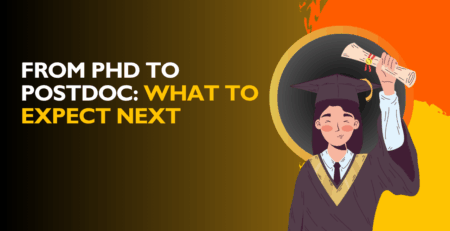A New House for Migration Research and Exchange for PhD Students
Kenfra Research - Shallo2025-04-04T16:17:36+05:30In today’s fast-evolving academic landscape, migration research emerged as one of the most critical and dynamic fields of study. With globalization, climate change, and international conflicts reshaping the movement of people across borders, the demand for in-depth research and collaboration in this area skyrocketed. To meet this growing need, a new and dedicated space—a House for Migration Research and Exchange for PhD Students—has been established, exclusively designed for Exchange for PhD Students and early-career researchers.

Why Migration Research Matters
Migration more than just the movement of people—it involves complex socio-political, economic, and environmental dynamics. It intersects with:
- Human rights
- Global development
- National security
- Labor markets
- Education systems
As countries grapple with increasing migration flows, evidence-based research vital to inform policy-making, improve integration strategies, and foster cross-cultural understanding. PhD students play a key role in this process, bringing fresh perspectives, fieldwork insights, and analytical skills to the table.
Introducing the House for Migration Research and Exchange
The House for Migration Research and Exchange (HMRE) a dedicated platform that provides a collaborative and interdisciplinary environment for PhD scholars. It serves as a physical and virtual hub where researchers from different parts of the world can connect, collaborate, and create impactful work.
Key Features of HMRE
- Research Labs & Study Rooms: Equipped with advanced resources for data analysis, qualitative research, and collaborative writing.
- Exchange Programs: Facilitate international academic exchange among scholars, allowing them to work with migration experts in different countries.
- Workshops and Seminars: Regular training sessions on migration theories, methodologies, and policy engagement.
- Digital Library: Access to the latest journals, migration databases, and research toolkits.
- Publication Support: Assistance with Scopus and SCI-indexed journal publications, a must for academic credibility.
Empowering PhD Students: Academic and Career Benefits
Interdisciplinary Learning
Migration affects and is affected by various disciplines—sociology, economics, political science, environmental studies, and international law. At HMRE, students get the chance to break academic silos and approach problems from diverse perspectives.
Global Networking
By connecting with peers and professors from around the globe, students can broaden their academic network, explore joint publications, and even gain insights into post-doctoral opportunities abroad.
Real-World Impact
The research conducted at HMRE is closely tied to real-world problems. Scholars are encouraged to engage with NGOs, think tanks, and policy institutions, ensuring their research contributes to meaningful change.
Publishing and Visibility
The in-house team at HMRE provides guidance for journal selection, formatting, plagiarism checking, and submission—an essential service for scholars aiming to publish in Scopus, SCI, or other reputed journals.
Digital Transformation in Migration Research
Recognizing the digital shift in academic research, the House also incorporates AI-powered tools and platforms. From automated literature reviews to big data migration modeling, technology is at the core of modern research.
PhD students gain access to:
- AI-based writing assistants
- Plagiarism checkers
- Reference management software
- Virtual conferencing tools for international presentations
This digital-first approach ensures that scholars are technologically empowered and can produce high-quality, globally relevant research.
Building a Community of Change-Makers
Beyond just research, the House fosters a community-driven atmosphere. PhD students often face academic isolation, especially when dealing with complex subjects like migration. The HMRE encourages peer mentorship, open discussions, and mental well-being support to create a holistic research environment.
Students are also invited to contribute to in-house blogs, newsletters, and research digests, boosting their visibility and public engagement skills.
How to Join the House for Migration Research and Exchange
The application process is designed to be inclusive and merit-based. Interested PhD candidates or scholars can apply through the official HMRE website. Requirements typically include:
- A brief research proposal
- Academic CV
- Letter of recommendation
- Proof of PhD enrollment
Priority is given to students working on migration-related topics, especially those with innovative, policy-relevant, or interdisciplinary approaches.
Final Thoughts
The establishment of the House for Migration Research and Exchange for PhD Students is more than just the creation of a building—it’s the birth of a new academic culture, one that values global cooperation, practical impact, and student empowerment. Exchange for PhD Students plays a vital role in ensuring that emerging scholars are well-supported, well-connected, and well-prepared to address the challenges of global migration.
Kenfra Research understands the challenges faced by PhD scholars and offers tailored solutions to support your academic goals. From topic selection to advanced plagiarism checking.










Leave a Reply